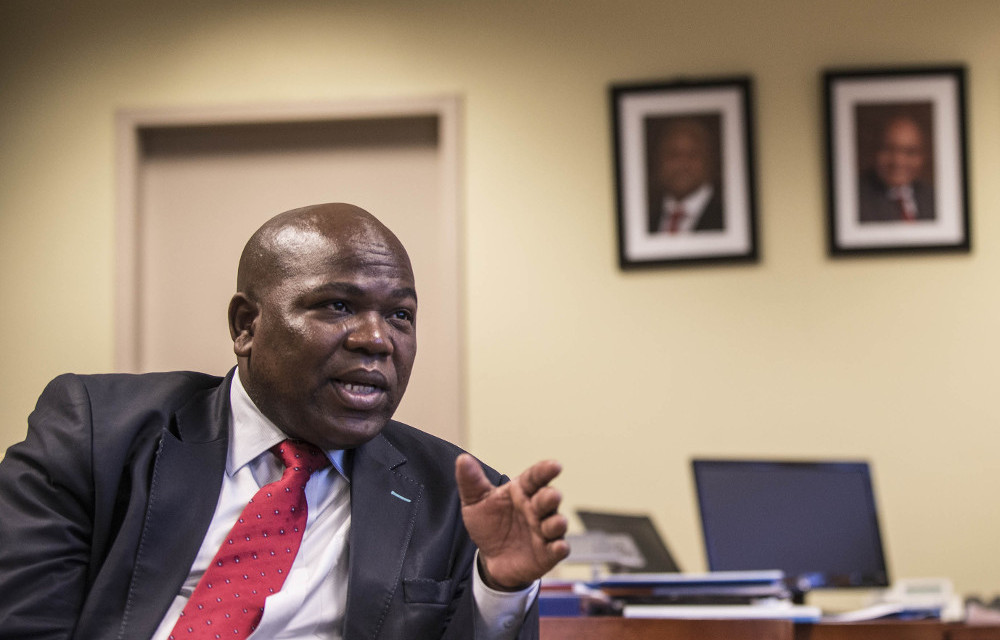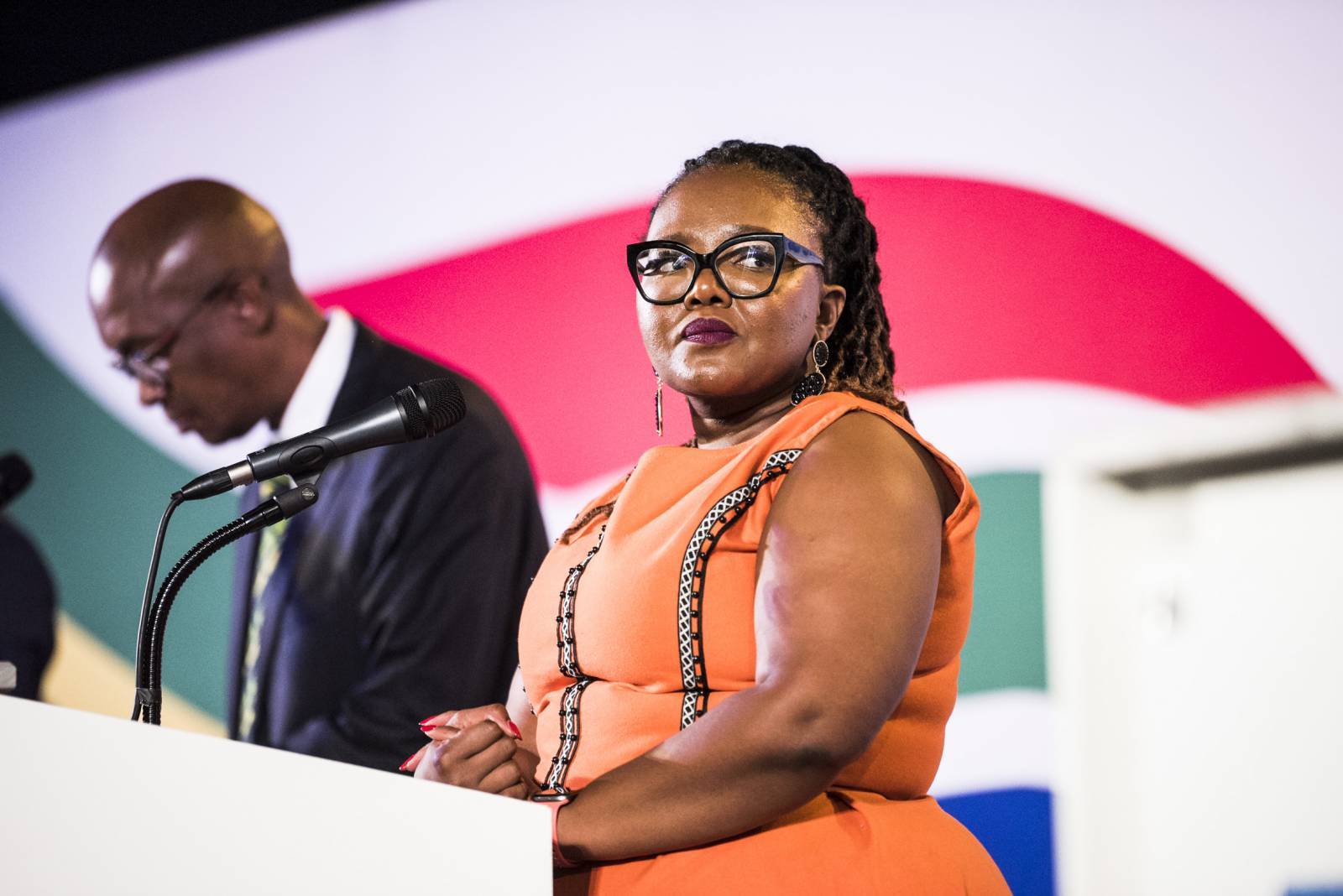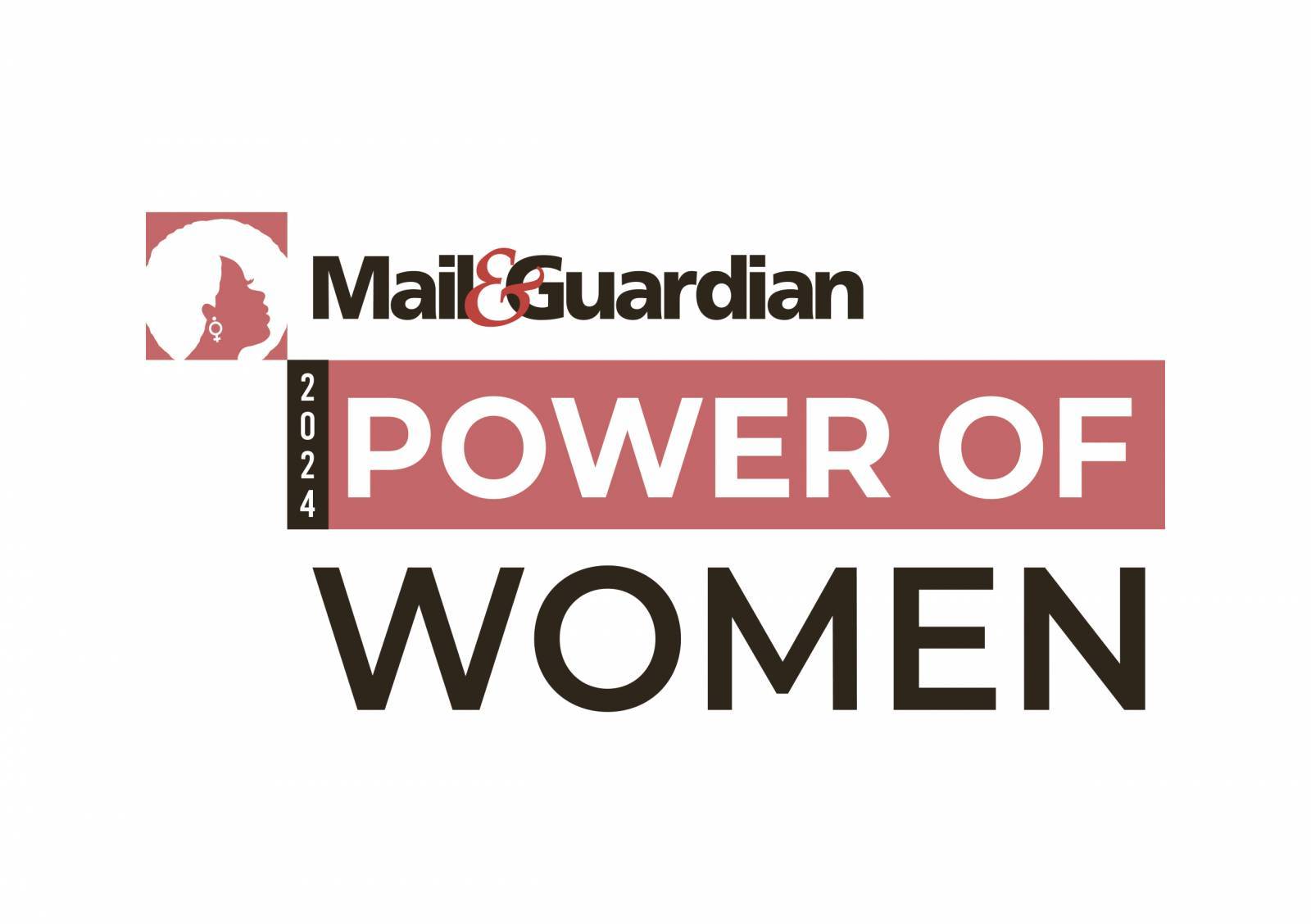
South Africa’s ruling African National Congress is leaning toward more populist economic policies to win back support after its worst performance in an election since Nelson Mandela led the party to victory in a vote that ended apartheid in 1994.
The ANC will press the government to prioritise creating jobs and alleviating poverty in the national budget at the four-day Cabinet meeting that started Tuesday, secretary general Gwede Mantashe said after the party’s top decision-making body met last weekend. The party also mandated the government to speed up the process of implementing a national minimum wage and said the nation’s universities shouldn’t announce any fee increases.
The shift in policy is an attempt to secure support from the 27 percent of the workforce without jobs and to dim the appeal of the leftist Economic Freedom Fighters party that’s winning voters over in traditional ANC strongholds. To pay for it, the government may need to boost debt and risk a credit-rating downgrade to junk or raise taxes again and further alienate the urban middle class that shunned the ruling party in the August 3 municipal election.
“It sounds to me like they want to enact a greater degree of what I would call, fiscal populism,” Russell Lamberti, chief strategist at ETM Analytics, said by phone from Cape Town on Monday. “We potentially are heading down the scenario here where they respond to election defeat by using fiscal policy in a more activist way, and that leads us down downgrade territory.”
There is a risk that the 104-year-old ANC could turn to more populist measures, including breaching expenditure ceilings or “redistributive regulatory policies” that might undermine economic growth, to address rising voter dissatisfaction, Fitch Ratings said on August 5. While Fitch and S&P Global Ratings affirmed South Africa’s credit rating at BBB-, one level above junk, in June, they said the government must take decisive steps to bolster growth, quell policy uncertainty and end political turmoil to avoid a future downgrade.
Finance Minister Pravin Gordhan pledged in his February budget to narrow the fiscal deficit to 2.4% of gross domestic product by 2019, from 3.9% last year, and limit gross debt to 50.5% of GDP in three years by reining in spending and increasing taxes. The government will stick to the fiscal consolidation targets and objectives set out in the budget, the Treasury said last week.
“I would not, at the moment, blame ratings agencies for reading into this statement a shift towards not just populism, but more extraction from public resources,” Iraj Abedian, chief executive officer at Pan-African Investments and Research Services in Johannesburg, said by phone on Monday.
The ANC’s senior leaders absolved President Jacob Zuma of blame for the party’s election performance even as a series of scandals surrounding him contributed to voter discontent. Zuma was forced to name Gordhan as finance minister, a position he held between 2009 and 2014, in December when business and political leaders persuaded him to backtrack on a decision to appoint a little-known lawmaker to the position, after the rand and bonds plunged.
Gordhan is leading efforts to avoid a credit-rating downgrade and has met with business and labor leaders and investors to come up with measures to boost confidence in an economy that the central bank projects won’t expand this year. The ANC’s statement could put renewed strain on the relationship between the finance minister, who has said he will maintain the spending ceiling, and Zuma and his party, according to George Herman, head of South African investments at Cape Town-based Citadel Investment Services.
The decisions in the ruling party’s statement are a way to “score very quick, easy, short-term goals” with voters, Herman said by phone. If the government announces new spending plans “financial markets and the ratings agencies will be very concerned.” – Bloomberg


